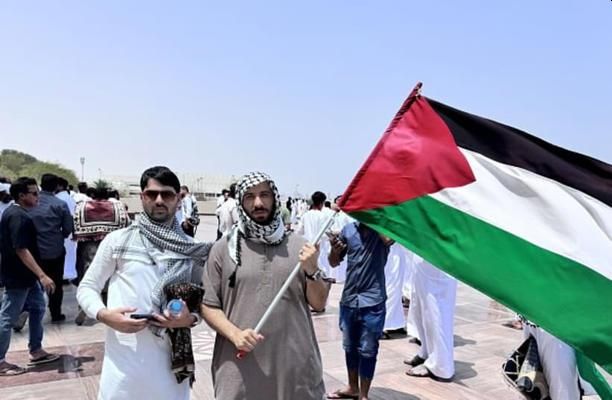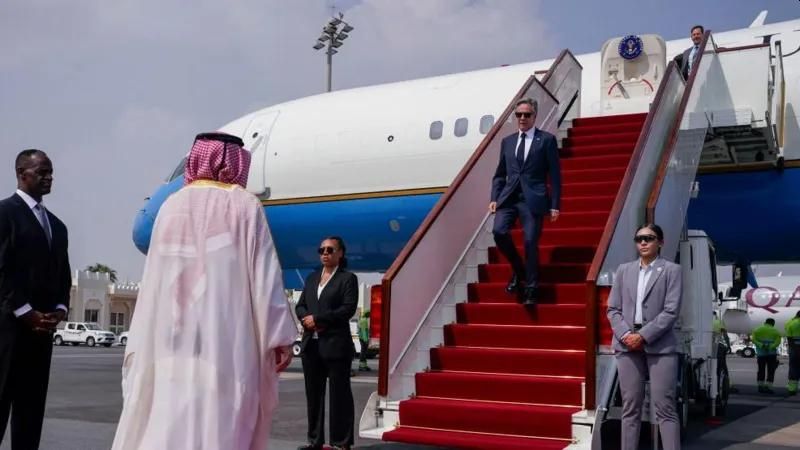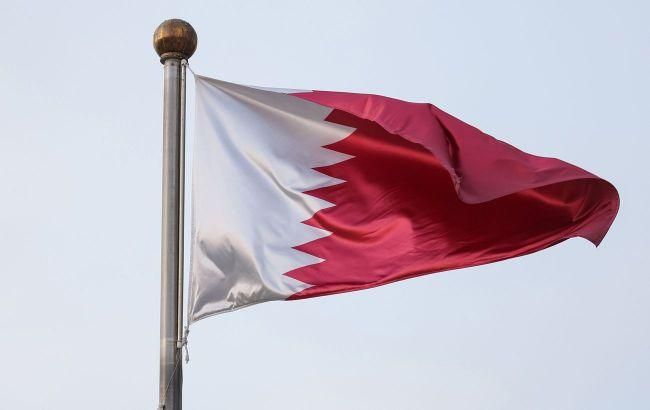By Eric Vandenbroeck and co-workers
What Next After Qatar Suspends
Mediator Role
Qatar has suspended its work as a mediator in ceasefire and hostage
release talks between Israel and Hamas, officials
say.
It comes after senior US officials
reportedly said Washington would no longer accept the presence of Hamas
representatives in Qatar, accusing the Palestinian group of rejecting fresh
proposals for an end to the war in Gaza.
How We Got Here
To understand how we got here, it’s
worth looking at history. Doha has managed to position itself as indispensable
by hosting the group that carried out October 7, and then making it seem that
having Hamas in Qatar would somehow help with a ceasefire or hostage deal.
One might wonder, if Hamas had never
been in Qatar, would it have grown so powerful to do October 7? One might also
wonder how none of the intelligence services in the region had any hint that
Hamas was going to do this unprecedented attack. If it was a benefit, having
Hamas in Doha, then why didn’t that prevent the worst massacre of Jews since
the Holocaust.
If it was a benefit to have Hamas in
Qatar, then why didn’t Hamas moderate itself via Doha’s pressure? Why didn’t
Qatar condemn October 7? Why didn’t Doha even appear surprised by the Hamas
onslaught? One would think that most countries hosting a group would be
surprised if the group massacred 1,000 people.
Doha’s hosting of Hamas has been in the spotlight for
years. Each time there was a push to get Hamas to leave Doha, there would be
pushback. The argument was that it was better to have a Western partner and
ally hosting Hamas because this would facilitate dialogue with the group. In
addition, funding flowed from Doha to Gaza. This funding included money for
reconstruction after the 2014 war and it also included money that paid
salaries. The theory was that the money would keep Hamas happy. If the money stopped,
then Hamas would go to war.
Hamas's wider strategy
Doha’s hosting of Hamas was part of a
wider global strategy. It also positioned itself as a host of the Taliban so
that it could be a key conduit between the US and the Taliban. As such Doha
became the broker of many deals in the region and globally. For instance, it
also positioned itself as a mediator with Iran, because Qatar has good ties
with Iran. At each juncture, Doha benefits from being a mediator but it also
has good ties with both sides and often supports one more than the other. For
instance, the Taliban have now crushed women’s rights in Afghanistan. The
Taliban being hosted by Doha paved their way to return in 2021. It’s likely
that having successfully brought the Taliban back to power, Qatar believed it
could also bring Hamas to power in the West Bank.
Doha, Qatar - August 2: A man holds a Palestinian flag
as people attend a funeral ceremony, held for Hamas political chief Ismail
Haniyeh:

Qatar Not a Neutral Mediator
Qatar does not appear to be a neutral
mediator. It appears to often prefer more hardline groups, such as Hamas or the
Taliban, or groups linked to the Muslim Brotherhood. However, Doha also knows
how to be flexible. During the Gulf crisis when Saudi Arabia and the other Arab
states broke relations with Qatar, it weathered the storm until it could
reconcile with Riyadh. It also reconciled with Cairo.
Qatar is a keen ally of Turkey and the
two countries generally share interests. Both of them are allies of the West
officially but both are happy to work with opponents of the West. Both of them
believe this independent policy benefits them more than merely being on the
side of the west. Balancing the West and other countries, such as Iran, can
make the “mediator” indispensable to both sides.
Now reports indicate that rather than
expelling Hamas, Doha may be threatening to end its role as a mediator. This
ostensibly presents Israel and the US with the worst of both worlds. Hamas
could remain in Qatar and Doha wouldn’t mediate. The real story is likely more
complex. Qatar has often hinted in the past that any pressure it receives from
Washington or even critique of its role in Congress, could harm the hostage
talks.
In essence, Doha positioned itself as
mediator by hosting Hamas and then tries to pressure countries into using it as
a mediator. This is not a neutral place to be, when mediation is the business.
It’s not altruistic, it’s purposely hosting Hamas to make itself a player so
that it can become the mediator, so that countries have to go via Doha to get
things done.
Reports that Hamas might be asked to
leave could be a trial balloon, and Doha’s decision to then claim it is ending
its role as a mediator may be designed to send a message to Israel and the US
that if there is any pressure on Doha, then Qatar will walk away and the
hostage talks and ceasefire talks will end. This would then be used to pressure
Israel by claiming no other countries will step in as mediators.
The US election on November 5 could also
play a role here. Reports say that incoming US President Donald Trump wants the
Gaza war to end. Doha could be signaling to the incoming administration that it
will not be threatened with pressuring Hamas to end the war and that any
attempt to get Hamas out of Doha will result in a longer war. Of course, the US
and others could call this bluff. The overall goal of Qatar is to keep the ball
in its court and make sure that it is the go-to in the region whenever there is
conflict.
The Last Attempts to Reach an Agreement?
Qatar notified the parties 10 days ago
during the last attempts to reach an agreement, that it would stall its efforts
to mediate between Hamas and Israel if an agreement was not reached in that
round," a statement from the Qatari foreign ministry said.

"Qatar will resume those efforts...
when the parties show their willingness and seriousness to end the brutal
war."
Hamas has had a base in the Qatari
capital since 2012, reportedly at the request of the Obama administration.
Several news agencies reported on
Saturday that Qatar had agreed with the US to tell Hamas to close its political
office in Doha due to "a refusal to negotiate a deal in good faith".
But the foreign ministry said the
reports were "inaccurate". The claims have also been denied by Hamas
officials.
The small but influential Gulf state is
a key US ally in the region. It hosts a major American air base and has handled
many delicate political negotiations, including with Iran, the Taliban, and
Russia.
Alongside the US and Egypt, the Qataris
have also played a major role in rounds of so-far unsuccessful talks to broker
a ceasefire in the year-long war between Israel and Hamas in Gaza.
But there is growing evidence of a shift
in the relationship.
After the killing of Hamas leader Yahya
Sinwar, Hamas held a two-hour mourning tent in Doha in a small hall, a stark
contrast to the recent three-day mourning held for Hamas leader Ismail Haniyeh,
which was conducted with official state oversight and security.
The latest round of talks in mid-October
failed to produce a deal, with Hamas rejecting a short-term ceasefire proposal.
The group has always called for a complete end to the war and the full
withdrawal of Israeli troops from Gaza.
The Qatari foreign ministry statement
said: "Media reports regarding the Hamas office in Doha are inaccurate."

"The main goal of the office in
Qatar is to be a channel of communication... [which] has contributed to
achieving a ceasefire in previous stages."
Israel has also been accused of
rejecting deals. Days after being fired earlier this week, former Defense
Minister Yoav Gallant accused Israeli Prime Minister Benjamin Netanyahu of
rejecting a peace deal against the advice of his security chiefs.
The call for Hamas to be expelled from
Qatar appears to be an attempt by the outgoing Biden administration to force
some sort of peace deal before the end of his term in January.
Were Hamas to be forced to leave Doha,
it is unclear where they would base their political office. Key ally Iran would
be an option, although the assassination of former leader Ismail Haniyeh in
Tehran in July suggests they may be at risk from Israel if based there. It
would also not give them anything close to the same diplomatic channels as the
West.
Turkey a More Likely Mediator?
A more likely option would be Turkey. As
a Nato member but also a Sunni majority state, it would give the group a base
from which to operate in relative safety. Erdogan
sympathizes with Hamas’s cause. Last April President Erdogan hosted
Hamas leaders in Istanbul, where they talked about “what needs to be done to
ensure adequate and uninterrupted delivery of humanitarian aid to Gaza and a
fair and lasting peace process in the region".
The move would also most likely be
welcomed by Ankara, which has often sought to position itself as a broker
between east and west.
Key Hamas figures such as Osama Hamdan,
Taher al-Nunu, and others frequently featured on news outlets have been staying
in Istanbul for over a month.
Their extended presence in Turkey marks
a departure from past visits, which were typically limited to brief stays.
It is thought the personal safety of
Hamas leadership is now a major concern for the group, which saw two leaders
killed in less than four months. As well as Haniyeh’s death in July, in October
Israel killed Yahya Sinwar, the mastermind behind the 7 October Hamas attack on
southern Israel.
According to the European Council of
Foreign Relations, “Hamas has adopted a temporary model of collective
leadership to mitigate the effect of future Israeli assassinations”.
H A Hellyer, a senior associate fellow
at the Royal United Services Institute (Rusi), told the BBC that nowhere “will
give them protection from Israeli assassination attempts in the same way that
being in Doha, where America has its largest military base in the region, did”.
The latest move comes as US officials
appear increasingly frustrated with the approach the Israeli government has
taken to ending the war. In October, the US Secretaries of State and Defense
said if Israel did not allow more humanitarian aid into the territory by 12
November, they would face unspecified policy
“implications”.
Last weekend several UN officials warned
the situation in northern Gaza was “apocalyptic”. On Saturday the independent
Famine Review Committee said there was a “strong likelihood that famine is
imminent in areas”.
The relationship between President Joe
Biden and Netanyahu has deteriorated throughout the war in Gaza, with
increasing pressure from Washington to improve the humanitarian situation for
the Palestinians and find some sort of negotiated settlement.
For updates click hompage here